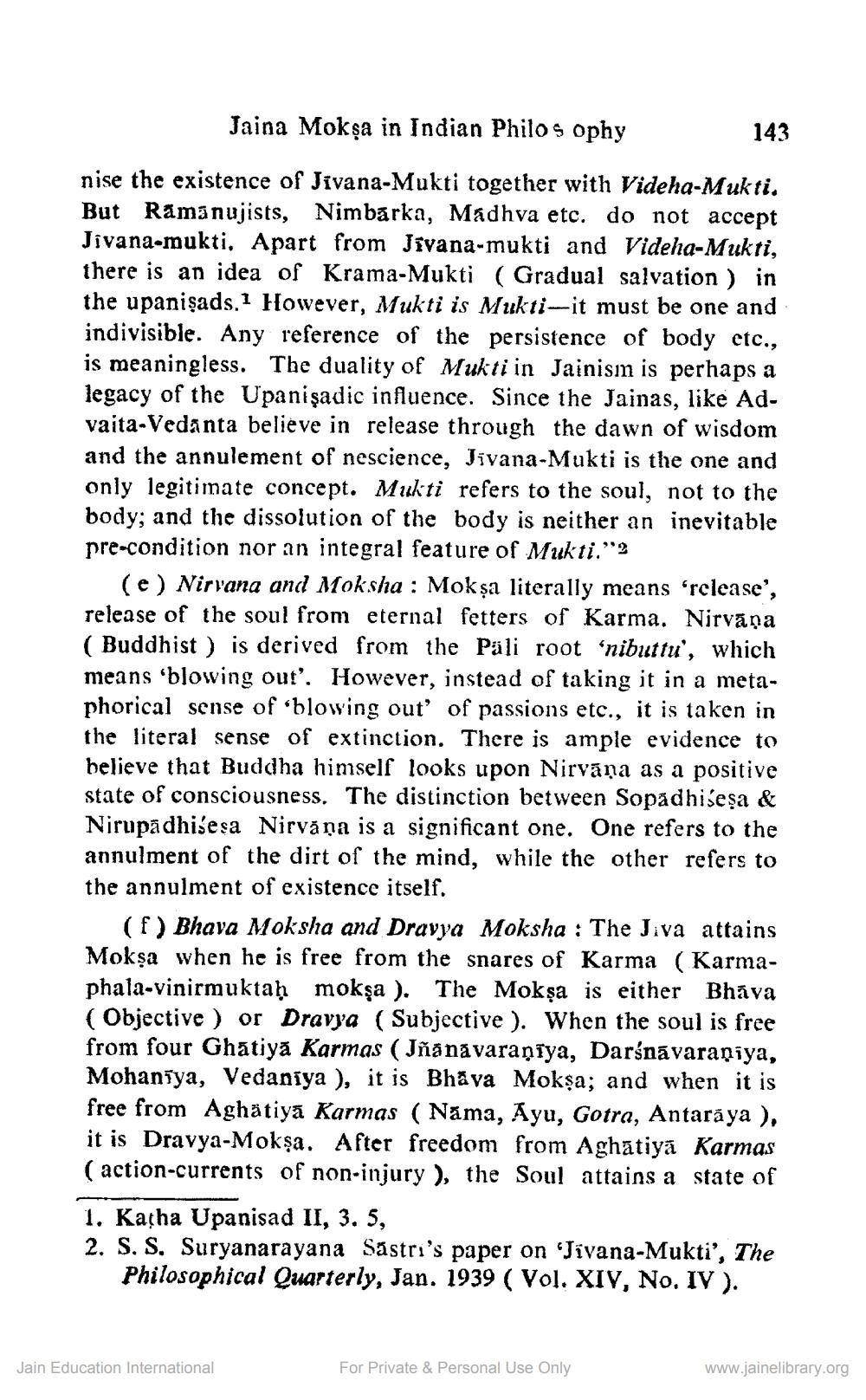________________
Jaina Mokşa in Indian Philosophy
nise the existence of Jivana-Mukti together with Videha-Mukti. But Ramanujists, Nimbarka, Madhva etc. do not accept Jivana-mukti. Apart from Jivana-mukti and Videha-Mukti, there is an idea of Krama-Mukti (Gradual salvation) in the upaniṣads.1 However, Mukti is Mukti-it must be one and indivisible. Any reference of the persistence of body etc., is meaningless. The duality of Mukti in Jainism is perhaps a legacy of the Upanisadic influence. Since the Jainas, like Advaita-Vedanta believe in release through the dawn of wisdom and the annulement of nescience, Jivana-Mukti is the one and only legitimate concept. Mukti refers to the soul, not to the body; and the dissolution of the body is neither an inevitable pre-condition nor an integral feature of Mukti.”?
(e) Nirvana and Moksha Mokṣa literally means 'release', release of the soul from eternal fetters of Karma. Nirvāņa (Buddhist ) is derived from the Päli root 'nibuttu', which means 'blowing out'. However, instead of taking it in a metaphorical sense of 'blowing out' of passions etc., it is taken in the literal sense of extinction. There is ample evidence to believe that Buddha himself looks upon Nirvana as a positive state of consciousness. The distinction between Sopadhiseṣa & Nirupadhisesa Nirvana is a significant one. One refers to the annulment of the dirt of the mind, while the other refers to the annulment of existence itself.
143
(f) Bhava Moksha and Dravya Moksha : The Jiva attains Mokşa when he is free from the snares of Karma (Karmaphala-vinirmuktaḥ mokşa ). The Mokṣa is either Bhāva (Objective) or Dravya (Subjective). When the soul is free from four Ghatiyā Karmas (Jñanavaraṇīya, Darśnāvaraṇīya, Mohaniya, Vedaniya), it is Bhava Mokşa; and when it is free from Aghatiya Karmas (Nama, Ayu, Gotra, Antaraya ), it is Dravya-Mokşa. After freedom from Aghatiya Karmas (action-currents of non-injury), the Soul attains a state of
1. Katha Upanisad II, 3. 5,
2. S. S. Suryanarayana Sastri's paper on 'Jivana-Mukti', The Philosophical Quarterly, Jan. 1939 (Vol. XIV, No. IV).
Jain Education International
For Private & Personal Use Only
www.jainelibrary.org




